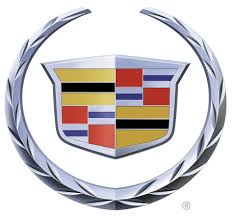Fleetwood V8-368 6.0L VIN 9 FI (1982)

Coolant: Technical Service Bulletins
Cooling System - Recycling Coolant Update
NO.: 92-I-21
DATE:
Dec. 1991
GROUP:
6
CORP. NO.: 136204
SUBJECT:
COOLANT RECYCLING UPDATE
This bulletin supersedes DSIB 91-I-40 which should be discarded.
As indicated in the bulletin identified above, General Motors has been conducting an evaluation of various types of coolant recycling equipment. With
the completion of this evaluation, the following notice was provided to the media on October 31, 1991:
General Motors Service Technology Group (STG) announced the results of their extensive test to evaluate engine coolant recycling systems. The project,
the first comprehensive study of its kind in the automotive industry, was developed to establish standards for reusability which could be of significance to
automobile dealers and owners.
The systems which have satisfactorily completed all the test requirements are:
ACTIV - CR5001 Finish Thompson - Bad Ethyl BG - Cooler/Cleaner Butler's American Fluid Technology (a franchise service)
Stanadyne - ECR and Wynns - Mark X remain in consideration pending completion of some final requirements. The results of the off-site recycling
evaluation will be announced as they become available.
All the systems meeting the test requirements for the coolant recycling project will be further evaluated for the GM Dealer Equipment Program. Dealers
are encouraged to wait for the Dealer Equipment line-up but are not required to do so and may work independently with any of these equipment
manufacturers.
NOTE:
An important note is that (ALL) Truck and Bus light and medium duty trucks (with the exception of APV's) with gasoline or diesel engines are excluded
from this recycling program. Previous bulletins have required the use of a low silicate inhibitor formula (6038 M) for Truck and Bus applications. The
inhibitors used in each recycling process are of a high silicate nature and therefore cannot be used. In the future, low silicate inhibitors (in recycled
coolant) will be evaluated for these specific applications.
Also be advised that under no circumstances should the coolant from any vehicle which is known to have (or had) a defective head gasket be recycled. It
is unknown at this time the effects on recyclability that excessive exhaust gas byproducts, having been entrained in the coolant, will have. Until special
tests can be performed to determine these effects, the coolant under these conditions must not be recycled.
